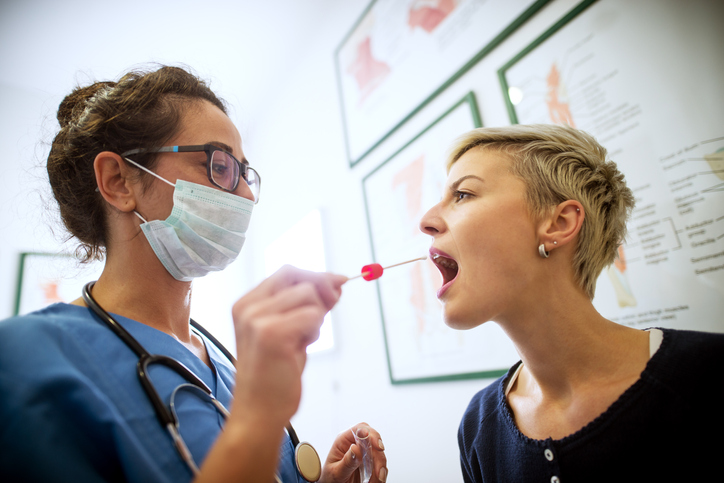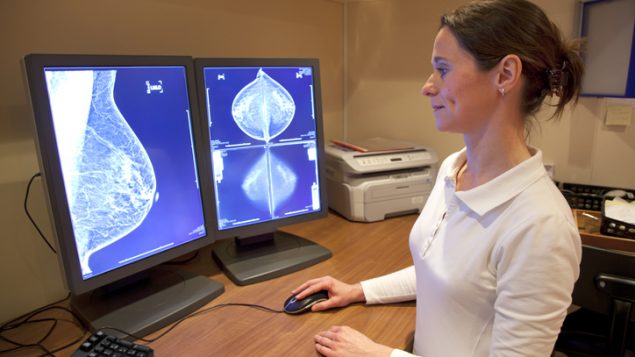In Canada, one in eight women are expected to develop breast cancer one in 31 will die of it. Now, scientists says a simple saliva test could help gauge with “unprecedented accuracy,” a woman’s risk of developing the disease during her lifetime.
Currently, Canadian women are screened for breast cancer between the ages 50 and 69 through mammograms. But 19 per cent of cases occur at an earlier age, and many women at high risk for the disease fall through the cracks and are not detected.

A simple saliva test could provide genetic information that would help determine her risk of developing breast cancer in future. (iStock)
Those at high risk could be more closely followed
Hundreds of new genetic markers have been found that can predict a genetic risk for breast cancer and one can test for them using a woman’s saliva. Results can be combined with other information to provide an even clearer picture of the overall risk of developing breast cancer. “Today there is another publication describing a risk prediction model, like a software for example, which will combine this…genetic information with other risk factors like family history, hormonal factors, lifestyle habits. And this can really provide a personalized risk,” says Jacques Simard, researcher and team leader of the study at Laval University.
Once someone is determined to be at high risk, doctors can determine a more intensive testing plan to detect development of breast cancer early.
Thousands will be tested
The model to predict risk will be tested on 10,000 women in the provinces of Ontario and Quebec. It will be evaluated for acceptability, feasibility and efficiency as well as for the organization challenges it would present in the public health care system. Results are expected in about four years.
The study was published in Genetics in Medicine and The American Journal of Human Genetics.

Jacques Simard explains the new risk-prediction model to detect the risk of breast cancer.
Listen






For reasons beyond our control, and for an undetermined period of time, our comment section is now closed. However, our social networks remain open to your contributions.